This page contains some affiliate links. Please review my disclosure policy.
Stress…we all have it. In our a fast-paced, pressure-filled world it’s incredibly challenging to avoid stress. Whether it’s physical stress on our bodies, through diet, exercise or environmental triggers or perceived stress from psychological factors, stress is all-around us and can have detrimental effects on our mental, physical and emotional well-being.
Put simply, being in sympathetic activation mode (i.e. stress mode) means that we aren’t spending as much time in parasympathetic mode (rest and relax mode) which controls our digestion, mood, and sleep patterns. The more time we spend in sympathetic activation, the less energy our body is putting towards our digestion, mood balance and sleep. Similarly, when we are activating our sympathetic nervous system, we are releasing higher amounts of cortisol and other stress hormones that can lead to sustained imbalances in all areas of the body. From heart disease to IBS to diabetes, long-term chronic stress will impact your body.
Our body is designed to handle a little bit of stress – that’s why the sympathetic nervous system exists! A little cortisol can be a good thing. It’s what helps you get up in the morning and get through the day. Without it, our bodies would go haywire at the sight of a bumblebee. BUT when your body has adapted to chronic stress, your body has a hard time bouncing back from even the smallest stressors so stress-relief isn’t just about decreasing your stress, it’s also about regulating it.
How to Decrease Your Stress
This is a beast of a topic, so large in fact that I have an entire FREE ebook dedicated to it. Sometimes the answer to reducing your stress is as simple as removing a direct stressor i.e. a challenging relationship, difficult boss, long commute etc…This of course is not simple for everyone. Sometimes there simply is nothing you can do to remove the stressor so in these situations it’s about simplifying and optimizing the things you CAN control.
Other times stress is a result of lifestyle factors like diet, sleep and exercise. A diet full of processed foods, lack of sleep and limited mobility WILL impact your body. In these cases it’s about prioritizing what you can in your life to eat whole foods, set a bedtime schedule and make time to move your body. Not easy, but necessary.
I’m of the opinion that less is more. It’s not always about doing ALL.THE.THINGS but sometimes it’s about eliminating the things that do not serve you and maximizing on the things that do. For me that means: sleep, yoga, walking and eating in line with my values. I also make time for specific rituals that bring me joy like drinking tea, journalling and hanging out with friends. It means saying no a lot, even to things that excite me because there are 24 hours in a day and I know my limits.
What is Stress Relief Tea?
As I mentioned, one of my favorite rituals for stress reduction is sipping on herbal tea. I’ve been a dedicated tea drinker for as long as I can remember and this year I finally took the plunge and enrolled in herbalism school. I recently completed it and I’m so thrilled to be able to start sharing some of the resources I have learned with you. From herbs for stress relief to skin-care remedies, herbal medicine can have incredible benefits for our bodies.
One of the many benefits of herbs is their ability to help with stress reduction. Can an herb be a magic bullet in reducing your stress overnight? HECK NO. But in conjunction with lifestyle factors, herbal tea can certainly impact your health – stress levels included.
So what is stress relief tea? It’s a blend of herbs that specifically target our nervous system to help decrease and balance our stress levels. Each herb has an individual effect helping to support the body, holistically.
What Are Adaptogens for Stress Relief?
Before I jump into the specific herbs selected for this stress relief tea I did want to briefly chat about adaptogens. I do have an entire blog post all about adaptogens (here) but they’re especially worth discussing in the context of stress-relief. Adaptogens are a set of specific herbs that help your body adapt to stress. Rather than specifically reducing your stress levels (or increasing!) they work with your body to help find the perfect balance for you. Here are some examples:
Ashwagandha – support for the adrenals and anxiety symptoms
Holy Basil – supports stress*
Eleuthero – supports physical and mental endurance and vitality*
Maca – traditionally used for energy and stamina
Rhodiola Rosea – increases energy, physical endurance and well-being
*included in the DIY stress relief blend
DIY Stress Relief Tea
If you know anything about herbalism you know there are hundreds if not thousands of herbs available for different purposes. Some help you to relax, some help you to sleep, some help with pregnancy and some can help prevent headaches. There’s pretty much an herb (or 20) for everything. This DIY Stress Relief Tea is my preference for herbal tea to help reduce stress. There are some great herbs out there that I didn’t include because they either a) aren’t the best testing b) difficult to find or c) overcomplicated the recipe (remember – simple is best!).
I chose these 5 herbs because they include a variety of herbs to help with both managing (i.e. adaptogens) and decreasing stress. Let’s get into them:
Chamomile – most people are familiar with chamomile, and for good reason – it’s effective! Chamomile is a relaxing nervine that helps encourage restful sleep. Better sleep = decreased stress.
Lavender – like chamomile, lavender is a relaxing nervine that helps encourage better sleep. In addition, multiple clinical trials have shown that lavender decreases anxiety and perception of pain (source).
Lemon balm – my love for lemon balm began last year when I got shingles. I discovered the superpowers of this herb and haven’t looked back. As an antispasmodic carminative, lemon balm is useful when stress or anxiety affects digestion (i.e. IBS) because it acts on both the digestive and nervous systems. Also I’m convinced it tastes like fruit loops!
Holy Basil – also known as Tulsi, this adaptogenic herb works with your nervous system to bring it into balance.It also has a relaxing and uplifting quality, acting as a mildly relaxing nervine which makes it a great option for those with anxiety and depression.
Eleuthero – known as the “work hard, play hard” herb, this adaptogenic powerhouse can help balance the nervous systems of those known to work a little too much and play a little too hard. It helps boost physical and mental stamina and endurance as well as promoting a healthy immune system.
Now that we know the constituents, let’s whip up this tea!
DIY Stress Relief Tea
- Prep Time: 1 minute
- Total Time: 20 minutes
- Yield: 1 cup 1x
Ingredients
- 2 tsp dried holy basil
- 1 tsp dried lemon balm
- 1 tsp dried chamomile
- 1/2 tsp dried lavender
- 1/2 tsp dried eleuthero root
Instructions
- Combine all ingredients in a mason jar or cup
- Top with hot water
- Place a plate or top onto mason jar and let infuse for 20 minutes*
- Remove plate and filter tea through strainer or cheesecloth
- Add honey or sweetener if desired
- Sip and enjoy!
*Covering the tea ensures that the volatile oils (the essential plant compounds) do not escape and get infused in the water.
Note: You can premix these ingredients in larger amounts, if desired. Feel free to add other herbs or play around with amounts.
Tackling stress requires a holistic approach. Drinking this tea alone will NOT decrease your stress levels if you continue certain lifestyle habits that are working in the opposite direction. If you’re serious about tackling your stress, check out this FREE stress relief guide I created to help you decrease your stress in just 10 days.
Note: These facts have not been approved by the Food and Drug Administration. While anecdotal reports are worth exploring, research on herbal medicine is limited and should be consumed only with your best discretion. Certain herbs should not be consumed while pregnant or breastfeeding. Please consult your physician before consuming.
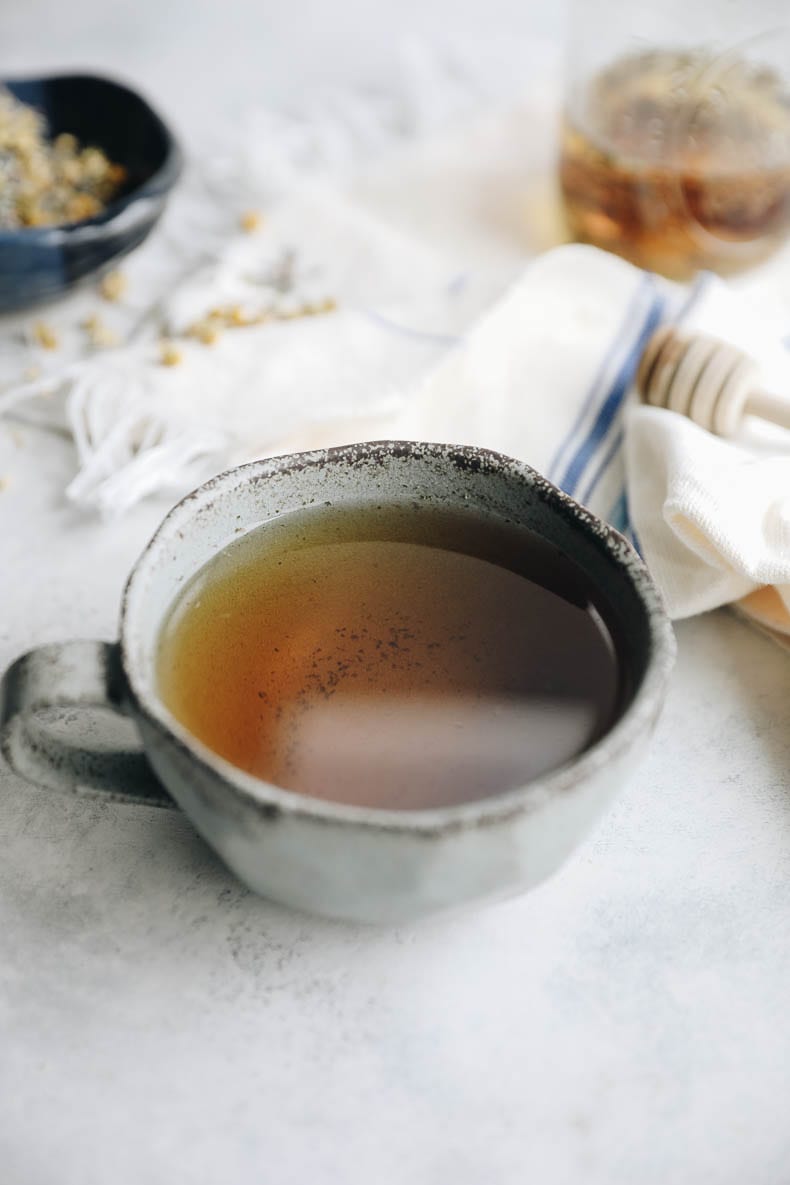
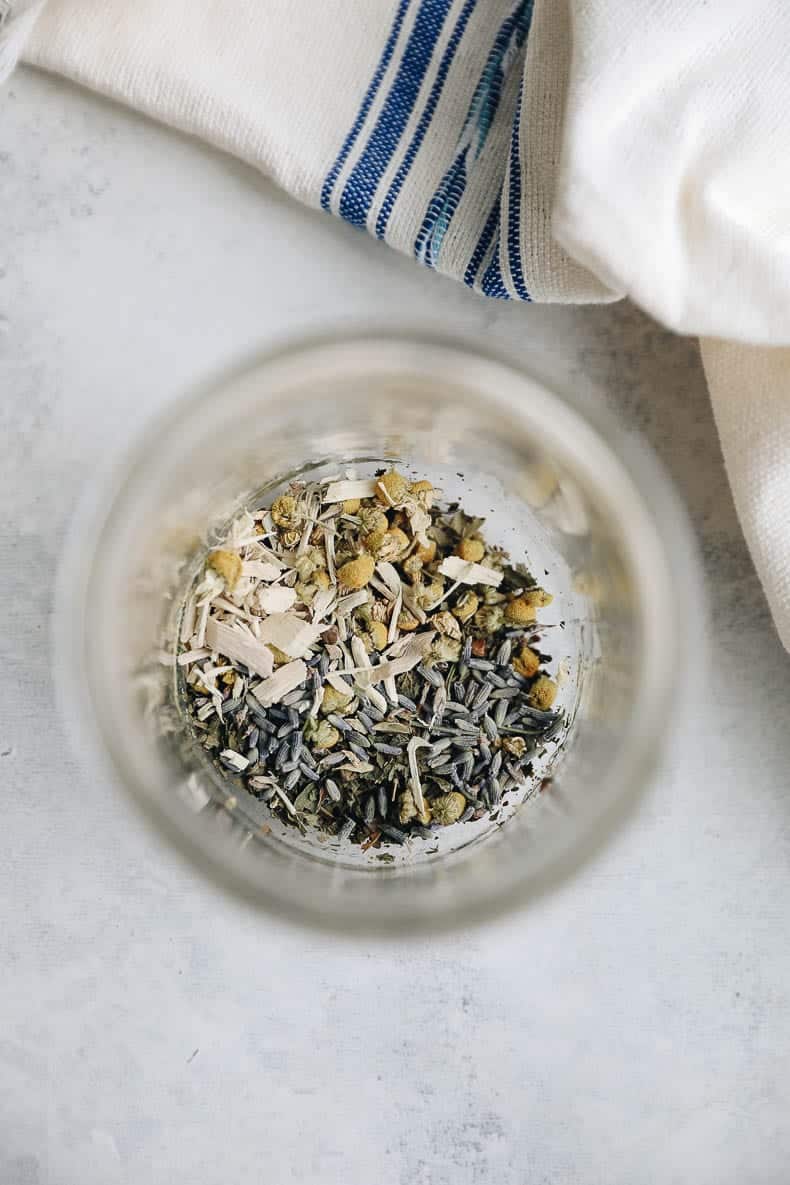
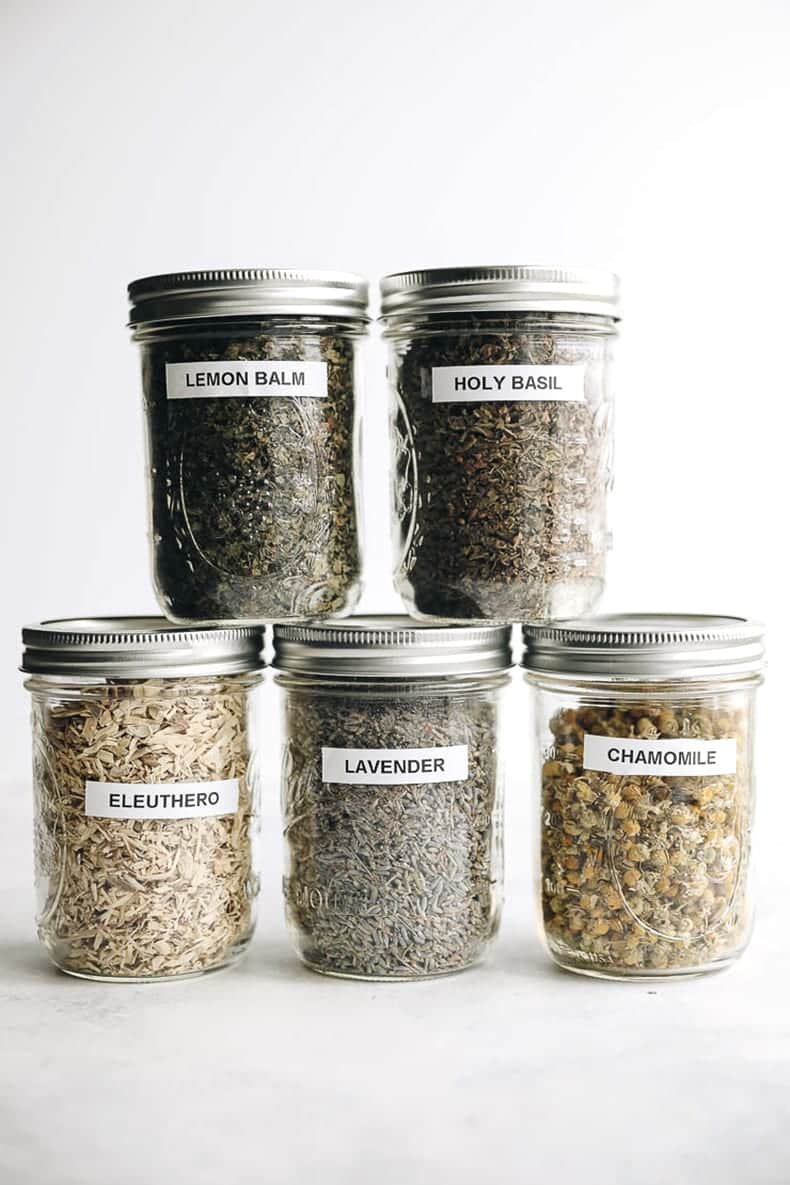
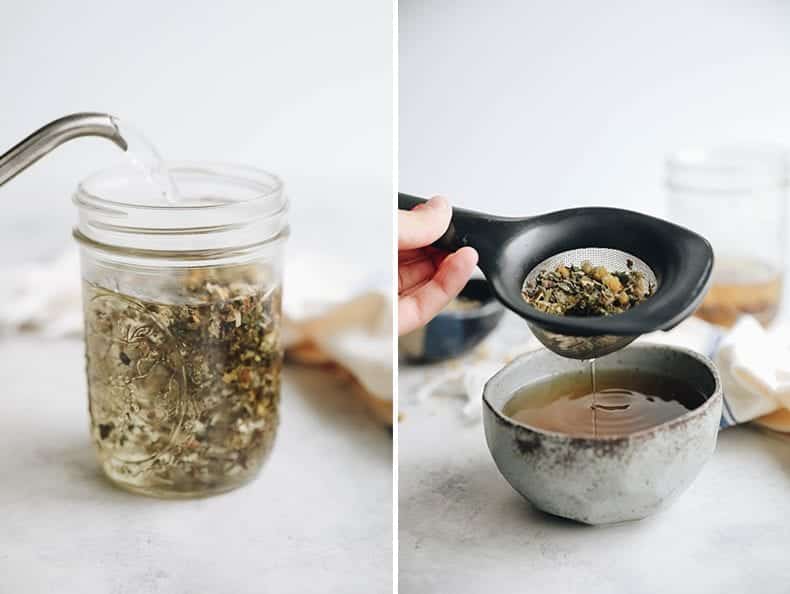



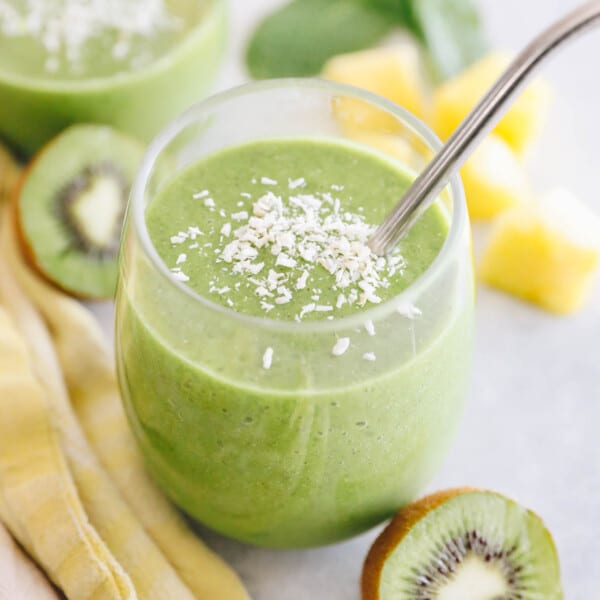
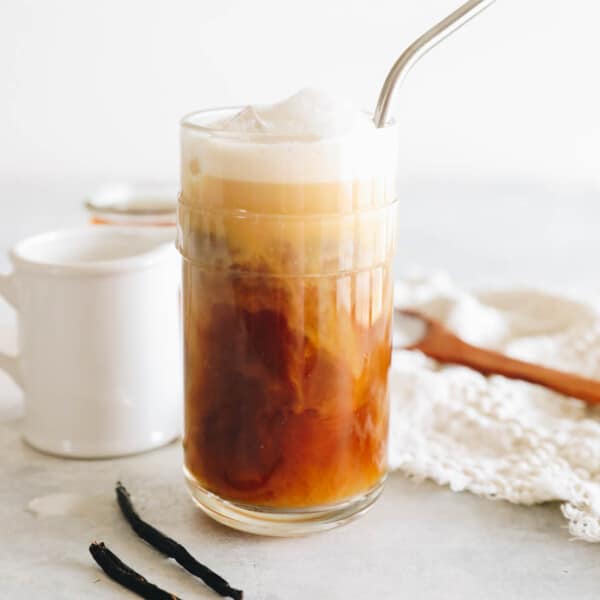

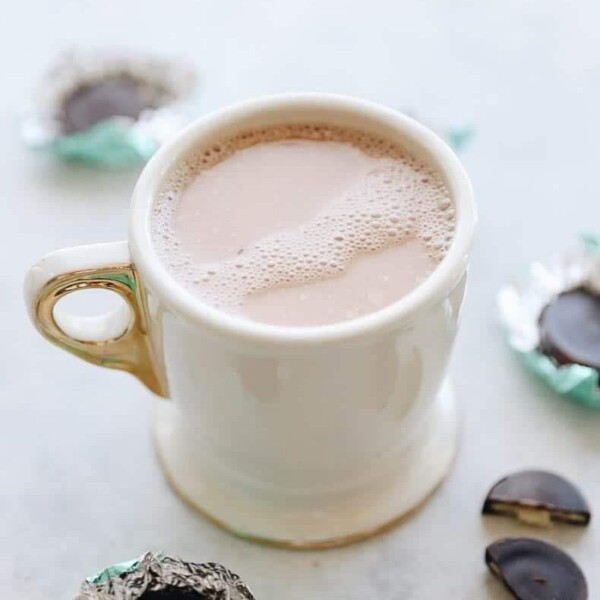





Thank you!! This is a very tasty tea=) Delicious!
Where is the best place to buy herbs? I am very excited to try this tea!
Thank you for the tea recipe! I am excited to try it.
I am a new subscriber and I have to say you have great content and you are very consistent.
This is very informative and helpful. For a very busy new mom like me, this is a perfect recipe! Thank you so much!
I am currently struggling with mental stress from work. Thank you for giving me the idea to explore herbal remedies, which I am usually a big fan of because an herb might be used to help you in the way you intended while still benefiting your health in other ways: It’s a double whammy! Thank you as well for talking about covering the tea to infuse the volatile oils that might otherwise escape – I never knew that.
Agreed! there are hundreds of herbs for different purposes, also described in Ayurveda. And they help in many ways such as treating several aches and reducing stress and improving sleep.
This recipe is something that everyone must try! I am giving a 5/5. Very useful!